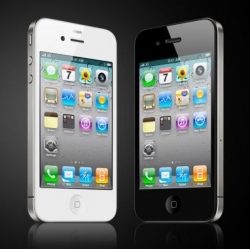
An early warning system for earthquakes can’t come soon enough for the US, which is lagging behind other seismically active countries like Mexico and Japan. For an early warning system to be effective it needs lots of sensors, which can be expensive to maintain.
A study says America might not need to invest in all that many sensors: Smartphones work just as well. Although geologists have long looked at smartphone accelerometers as a way to measure earthquakes, an actual earthquake sensor is essentially a giant accelerometer, the study claims that newer phones can measure an earthquake’s shaking even better with their scary-accurate GPS. “If you take your phone and move it six inches to the right, it knows with surprising accuracy that it moved six inches to the right, and that is exactly what we want to know when studying earthquakes,” study author Sarah Minson told the LA Times.
One challenge the scientists had to overcome was how to differentiate seismic shaking from regular phone movements since our smartphones are being jostled around all the time. It turns out that due to smartphone ubiquity, it was relatively easy to separate a bump on a table from an actual tremor just by correlating the motion with similar movements in nearby phones.
While there are plenty of tech-focused solutions in the works to give us a warning for earthquakes, like a a startup is making Nest-esque sensors for homes, tapping into the vast network of smartphones would be a game changer. Simply downloading an app would allow thousands of people to become mobile seismic reporting stations but could also drop the early warning notification system onto phones at the same time. Enlisting the power of smartphones makes this kind of reporting instant and nearly foolproof, making us all part of a crowdsourced science project that will also save few lives along the way.
